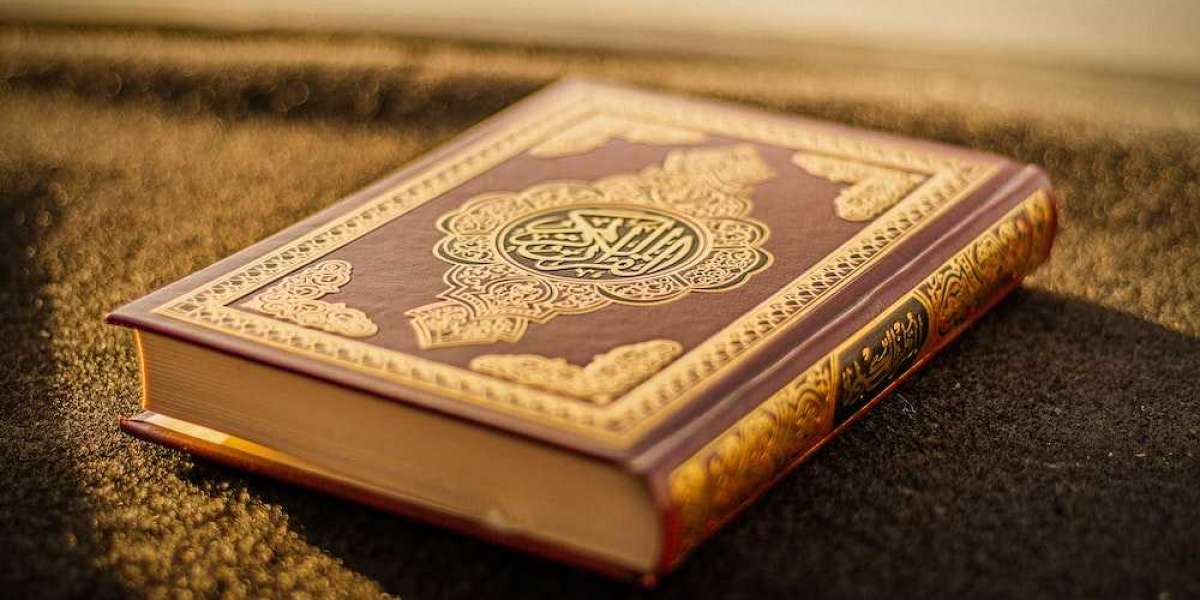The Quran is one of the most widely read religious texts in the world. It's a sacred book that has influenced millions of people for centuries. But have you ever wondered which religion uses this holy scripture? In this blog post, we'll explore the significance of the Quran and its place in Islam - one of the fastest-growing religions today. From its beliefs to practices, we'll delve into what makes Muslims unique as a community and what role this holy text plays in their daily lives. So buckle up and get ready to immerse yourself in a captivating journey through the wonders of Islam!
What is the Quran?
The Quran is a holy scripture that Muslims believe contains the word of God as revealed to the Prophet Muhammad. It's written in Arabic and consists of 114 chapters, each known as a surah. The Quran is considered to be an eternal miracle, with its language, style, and content remaining unchanged since it was first revealed over 1,400 years ago.
Muslims view the Quran as a guidebook for life that provides moral guidance on how to live a pious and righteous existence. Its verses cover various topics such as theology, ethics, law, history, stories of prophets and messengers from Adam until Muhammad (peace be upon them), social norms and etiquette among others.
It's important to note that Muslims hold the Quran in high reverence; they treat it with utmost respect by handling it carefully and reciting its verses regularly during prayer time or when seeking guidance from Allah (God). The memorization of the whole or certain parts of this book has been part of Muslim tradition since its revelation.
The Quran holds great significance in Islam; it's considered as an unparalleled source of knowledge for all humankind.
What religion uses the Quran?
The Quran is the holy book of Islam, but what religion uses it? The answer is simple: only one - Islam.
Islam is a monotheistic religion that believes in one God, Allah. Muslims follow the teachings of Prophet Muhammad and believe that the Quran contains the word of God as revealed to him through the angel Gabriel.
There are different types of Islam, including Sunni and Shia, which have some differences in their beliefs and practices. However, all Muslims believe in the importance and sanctity of the Quran.
Muslims derive their religious beliefs from various sources such as Sunnah (Prophet Muhammad’s actions), Hadith (his sayings) and Ijma (consensus among scholars). However, nothing compares to reverence for this holy scripture.
While people from other religions might read or study aspects of the Quran out of curiosity or academic interest; only Muslims use it as their guide towards salvation.
The different types of Islam
There are several types of Islam, each with its own unique set of beliefs and practices. Sunni Islam is the largest branch of the religion, comprising approximately 85% of all Muslims worldwide. Shi'a Islam is the second-largest branch, accounting for roughly 15% of all Muslims.
Another type of Islam is Sufism, which emphasizes introspection and mystical experiences as a means to connect with Allah. This form of Islam can be found throughout the world but has particularly strong roots in Iran and South Asia.
Ibadiyya is another lesser-known sect that originated in Oman and currently exists mainly in East Africa. They follow a strict interpretation of Islamic law and believe that only those who maintain perfect faith should lead their community.
Additionally, there are smaller movements like Ahmadiyya or Nation of Islam that have distinct beliefs from mainstream Muslim teachings.
It's important to understand that while there may be different interpretations within these branches, they all share fundamental values at their core: belief in one Allah and adherence to his laws as outlined in the Quran.
What are the beliefs of Muslims?
Muslims follow the teachings of Islam, which is based on the belief in one God, Allah. They consider Muhammad as the last prophet and believe in all previous prophets such as Abraham, Moses and Jesus. Muslims believe that life has a purpose and that they are accountable for their actions.
The Islamic faith places great emphasis on good deeds and encourages its followers to practice acts of charity, kindness towards others, honesty and integrity. It also teaches patience during hardships and trials.
One of the most fundamental beliefs of Muslims is that there will be a Day of Judgment when everyone will be held accountable for their deeds in this world. This motivates believers to live a righteous life according to Islamic principles.
Muslims also have strong beliefs regarding family values, respect for elders, women’s rights and justice. They strive towards building strong communities through mutual support and cooperation.
The Islamic faith provides guidance on how to lead a meaningful life filled with purpose while promoting peace and harmony among people from all walks of life.
The Five Pillars of Islam
The Five Pillars of Islam are the basic framework of Muslim life. They serve as a guide for Muslims to lead their lives in accordance with the teachings of the Quran. Each pillar has its own significance and importance, and all five pillars together form an integral part of Islamic faith.
The first pillar is Shahada, which is the declaration that there is no God but Allah and Muhammad (peace be upon him) is His messenger. It lays down the foundation for Islamic belief by acknowledging Allah as the one true God and Prophet Muhammad as His final messenger.
The second pillar is Salah, or prayer, which Muslims perform five times a day at specific times. This act of worship helps Muslims establish a connection with Allah and seek guidance from Him throughout their daily lives.
Zakat, or charity, forms the third pillar of Islam. This requires Muslims to give a portion of their wealth to those in need within their community. Through Zakat, Muslims help uplift those who are less fortunate and promote social welfare.
Sawm refers to fasting during Ramadan -the ninth month in Islamic calendar- where muslims abstain from food drink between dawn until sunset hours-. Fasting helps muslims develop self-discipline while promoting empathy towards others who may go hungry every day due to poverty.
Finally Hajj marks pilgrimage to Makkah once-in-a-lifetime for able-bodied financially capable adult believers.- During this journey millions gather together dressed similarly reminding they're equal before God regardless ethnicities-social statuses-, forming bonds through common beliefs while performing rituals based on islamic traditions thousands years old.
These Five Pillars represent not only religious obligations but also serve an important role in shaping Muslim character by promoting values such as discipline, compassion, generosity, unity among many others essential aspects seen on how Islam affects individual's daily life routine
What is Sharia Law?
Sharia Law is a set of religious and moral principles that guide the lives of Muslims. It covers all aspects of life, including personal hygiene, diet, daily prayers, marriage, divorce, inheritance and criminal justice. Sharia law is based on the Quran - the holy book of Islam – and the Sunnah or traditions of Prophet Muhammad.
It has been widely debated whether sharia law should be applied in modern legal systems. Some believe that it can coexist with secular laws while others see it as incompatible with democratic values such as freedom of speech and human rights.
In countries where sharia law is implemented as part of their legal system, punishments for crimes can be severe. These include amputation for theft and stoning to death for adultery.
Despite controversy surrounding its implementation in some parts of the world today, Sharia law remains an important aspect of Islamic faith for many Muslims around the world.
Conclusion
The Quran is a significant religious text that holds great importance to millions of people around the world. Muslims believe it to be the literal word of God and follow its teachings in their daily lives. Through this article, we have learned about different types of Islam, Muslim beliefs, the Five Pillars of Islam, and Sharia Law.
As an SEO expert, I hope this article has provided useful information for those seeking knowledge about what religion uses the Quran. For those who wish to learn more about Islam or read the Quran themselves, there are various resources available online and in print that can help deepen their understanding.
It's important to remember that every religion deserves respect and understanding from others regardless of personal beliefs. We should embrace unity in diversity while promoting mutual respect amongst all people with compassion and empathy towards each other's faiths.














